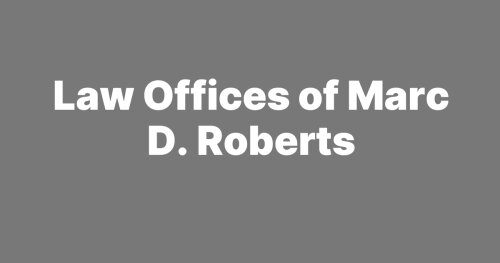Best Criminal Litigation Lawyers in Kansas
Share your needs with us, get contacted by law firms.
Free. Takes 2 min.
Or refine your search by selecting a city:
List of the best lawyers in Kansas, United States
About Criminal Litigation Law in Kansas, United States
Criminal litigation in Kansas refers to the legal process of handling charges for individuals or entities accused of violating state or local criminal laws. This litigation process typically begins when law enforcement investigates an alleged crime and may result in an arrest, formal charges, trials, and, in some cases, appeals. The main goal of criminal litigation is to determine the defendant's guilt or innocence and impose appropriate penalties where applicable. In Kansas, both misdemeanors and felonies are prosecuted aggressively, with the state’s courts ensuring that defendants receive a fair trial according to legal standards.
Why You May Need a Lawyer
If you are facing criminal charges in Kansas, obtaining legal representation is crucial to protecting your rights and achieving the best possible outcome in your case. Some common situations where you may need a criminal litigation lawyer include:
- Being arrested or detained by law enforcement
- Receiving a summons to appear in criminal court
- Being charged with misdemeanors or felonies such as theft, assault, drug offenses, or DUI
- Facing investigations or questioning by police
- Needing to negotiate a plea bargain
- Preparing for trial or appealing a conviction
A skilled criminal defense lawyer can guide you through the complexities of the legal process, help protect your rights, negotiate with prosecutors, and represent you at trial. Even cases that seem minor can have serious, long-lasting consequences, so professional legal counsel is essential.
Local Laws Overview
Kansas has its own set of criminal statutes outlined in the Kansas Statutes Annotated (KSA) chapters 21, 22, and others. Local laws cover a wide range of offenses, from simple misdemeanors to severe felonies. Key aspects include:
- Classification of crimes: Crimes are categorized as felonies, misdemeanors, and infractions, with separate procedures and penalties for each.
- Sentencing guidelines: Kansas uses a sentencing grid for felony offenses that takes into account prior convictions and offense severity.
- Rights of the accused: Defendants have rights to remain silent, access legal counsel, and receive a fair and speedy trial.
- Pre-trial and post-conviction processes: Laws govern bail, arraignment, preliminary hearings, appeals, and potential expungement of records.
- Drug laws and DUI: Kansas enforces strict penalties for drug offenses and driving under the influence, including mandatory minimum sentences for certain crimes.
- Juvenile offenses: Special provisions exist for juveniles accused of crimes, focusing on rehabilitation as well as accountability.
Understanding the specifics of Kansas criminal law is vital for anyone involved in a criminal case, as local statutes and procedures can differ significantly from other states.
Frequently Asked Questions
What should I do if I am arrested in Kansas?
Remain calm and ask to speak with an attorney before answering any questions. You have the right to remain silent and to have an attorney present during questioning.
What types of criminal charges are most common in Kansas?
Common charges include theft, assault, drug possession, DUI, domestic violence, and burglary. Each has its own legal procedures and potential penalties.
Is it possible to get criminal charges dismissed in Kansas?
Yes, charges can be dismissed if the evidence is insufficient, your rights were violated, or through successful negotiation by your lawyer. However, this depends on the circumstances of each case.
How does bail work in Kansas criminal cases?
Bail is money paid to secure your release from jail before trial. The amount is set by the court based on the offense and other factors. Some defendants may be released on their own recognizance.
Can a criminal record be expunged in Kansas?
Some misdemeanor and felony convictions can be expunged in Kansas after a waiting period and meeting certain requirements. Not all offenses are eligible.
What is the difference between a misdemeanor and a felony in Kansas?
Misdemeanors are less serious offenses, often punishable by less than a year in jail, while felonies are more serious and can lead to longer prison sentences and other consequences.
Do I have to talk to the police if I am a suspect?
No, you have the right to remain silent and to consult with an attorney before answering any questions from law enforcement.
What is a plea bargain?
A plea bargain is an agreement between the defendant and the prosecutor where the defendant pleads guilty to a lesser charge or receives a reduced sentence in exchange for waiving the right to a trial.
What happens at a criminal trial in Kansas?
At trial, both sides present evidence and witnesses to a judge or jury, who then decide guilt or innocence. Defendants have the right to testify, cross-examine witnesses, and present a defense.
How do sentencing guidelines work in Kansas?
Kansas uses sentencing grids to determine penalties for felonies based on the severity of the offense and the defendant's criminal history. Judges must follow these guidelines but can consider unique circumstances.
Additional Resources
If you need more information or assistance regarding criminal litigation in Kansas, consider the following resources:
- Kansas Judicial Branch - Provides information on court procedures and forms
- Kansas Legal Services - Offers legal assistance for those who qualify
- Kansas Bar Association - Directory for finding qualified criminal defense attorneys
- Local public defender's offices - Free or low-cost representation for eligible individuals
- District Attorney offices - For information on prosecution and case status
- Victim assistance programs - Support services for crime victims
Next Steps
If you are facing criminal charges or are involved in a criminal litigation matter in Kansas, it's important to act quickly. Here are recommended steps:
- Do not discuss your case with anyone except your attorney
- Contact a qualified Kansas criminal defense lawyer for a consultation
- Gather and organize any documents or information related to your case
- Appear on time for all court dates and follow your attorney’s advice
- Take advantage of local resources and support services if necessary
Seeking prompt and knowledgeable legal counsel is your best defense in navigating the criminal justice system and protecting your future.
Lawzana helps you find the best lawyers and law firms in Kansas through a curated and pre-screened list of qualified legal professionals. Our platform offers rankings and detailed profiles of attorneys and law firms, allowing you to compare based on practice areas, including Criminal Litigation, experience, and client feedback.
Each profile includes a description of the firm's areas of practice, client reviews, team members and partners, year of establishment, spoken languages, office locations, contact information, social media presence, and any published articles or resources. Most firms on our platform speak English and are experienced in both local and international legal matters.
Get a quote from top-rated law firms in Kansas, United States — quickly, securely, and without unnecessary hassle.
Disclaimer:
The information provided on this page is for general informational purposes only and does not constitute legal advice. While we strive to ensure the accuracy and relevance of the content, legal information may change over time, and interpretations of the law can vary. You should always consult with a qualified legal professional for advice specific to your situation.
We disclaim all liability for actions taken or not taken based on the content of this page. If you believe any information is incorrect or outdated, please contact us, and we will review and update it where appropriate.
Browse criminal litigation law firms by city in Kansas
Refine your search by selecting a city.











